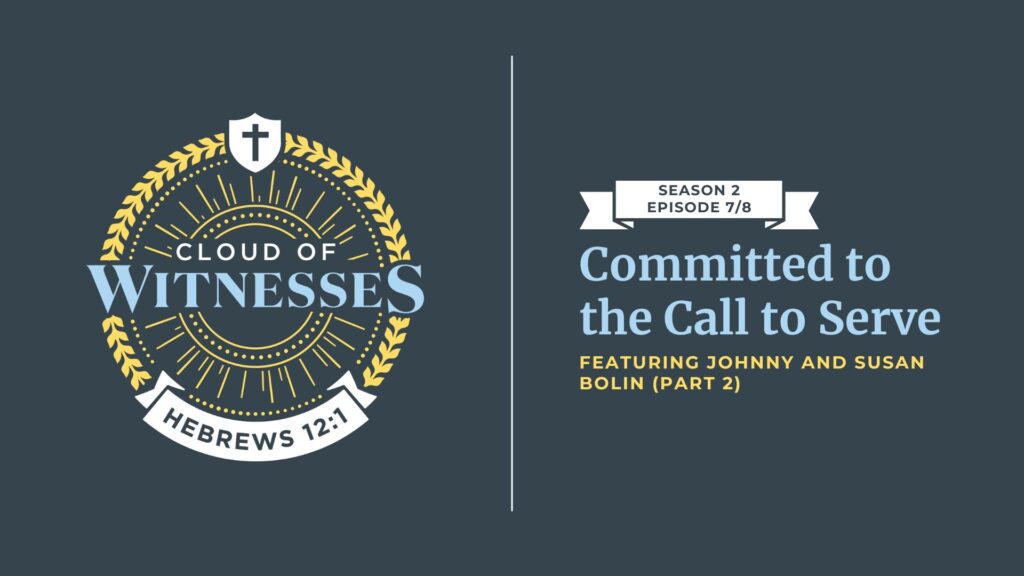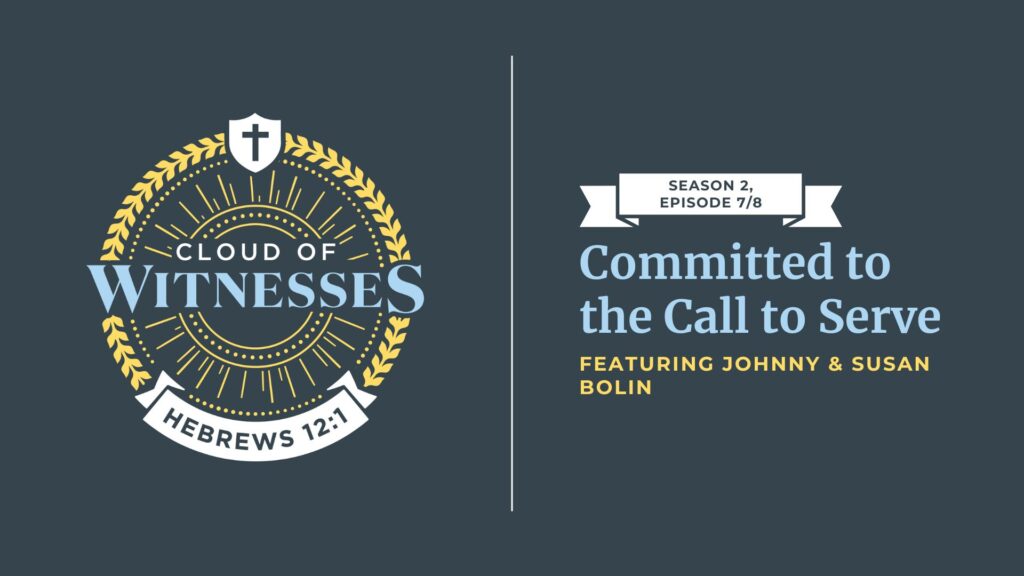I’m sure this wasn’t the only reason, but it was one of the biggest things he did in me. Missions provides ample opportunities for frustration: redundant visa paperwork, laws that change at random, gridlock traffic, confusing cultural customs, shopping at five stores with endless lines for basic groceries—the list goes on.
It is tempting to begin to think that if only life was easier, I wouldn’t get impatient, frustrated, or angry. But when I am frustrated, the stressful events of life aren’t the real problem. The events are simply God’s tool to reveal my heart. As heat exposes the impurities in gold and refines it, God uses difficult circumstances to refine my heart. When I face a difficult situation and become impatient, frustrated, or angry, it reveals what is in my heart—and that I am not as patient as I imagined.
In my battle with irritability, allow me to offer some perspectives God has used to challenge my heart. I pray that they will be a help to you as well.
1. Don’t take yourself so seriously; you are not that important.
Pride is often the root of my frustration. When I get frustrated with others for their actions, what I am really saying is, “I would never do anything like that, so I am justified at being frustrated with you.” This can apply to many areas of life (for instance, when others are forgetful, late, drive poorly, inefficient at their job, etc.). When I get frustrated with others, it is the result of my own proud, self-congratulatory belief that I am superior to others.
Pride is lifting up myself by looking down on others. By contrast, the Apostle Paul writes, “Do nothing from selfish ambition or conceit, but in humility count others more significant than yourselves” (Phil. 2:3).
2. Tell yourself a different story.
When someone does something that frustrates me, irritates me, interferes with my plan, causes more work, breaks my schedule, etc., my perspective is often self-centered. I think exclusively about how the other person’s actions affect me. And when I am the center of my own universe, I feel justified in my frustration and may even tell myself the story that the other person intentionally did something to offend me.
Most people are not intentionally doing things to irritate or bother others; rather, they, like me, act as if the world revolves around them. We all tend to do what we think is best to maintain our comfort. Dale Carnegie wrote:
“Stop a minute to contrast your keen interest in your own affairs with your mild concerns about anything else. Realise then, that everybody else in the world feels exactly the same way! Then… you will have grasped the only solid foundation for interpersonal relationships; namely, that success in dealing with people depends on a sympathetic grasp of the other person’s viewpoint.” (How to Win Friends and Influence People)
What story do I tell myself when I cut in traffic? I justify it because I am running late or because I didn’t see my exit. Do I ever call myself a jerk? Nope. I give myself grace, because I tell myself a different story. There’s a reason that I needed to cut.
When I get upset at others, I am not considering their story. I only have my perspective and the facts I know (or think I know). But my attitude totally changes when I understand the full story.
When frustrations rise, I now ask myself, “Could there be another side to the story that would make this situation understandable from this person’s perspective?” Is it possible that they may have a crisis back at home they’re rushing back to? Everyone has a story. The authors of Crucial Accountability remark: “Ask why a reasonable, rational, and decent person would do what you’ve just seen.”
Do I give others the same grace that I give myself?
Even if there is no human explanation, God still has a reason behind every obstacle. If I stay open to the truth that God always has a reason, I find great peace. “So whatever you wish that others would do to you, do also to them” (Matt. 7:12).
3. Be changed by difficulties, not controlled by them.
In the end, what controls me: events and circumstances, or truth? Is my attitude being determined by others’ actions and circumstances, or by the unchangeable person of Christ?
When I let people’s actions cause frustration or anger, I am allowing their actions to determine if I have a good or bad day. Not only does this affect my mood, but it could even affect my lifespan, since many health problems are stress-induced. Instead, I must be controlled and guided by truth and the Spirit, not the actions of others (cf. Gal. 5:18-23).
Frustrations are like God’s gym. Without exercise I would stay weak, and without harder exercise I will never grow any stronger. Resistance yields growth. In the same way, God allows difficulties to make us stronger.
God uses difficulties to show his power and work out his unseen plan. God’s plan is to glorify his name and grow us into the likeness of Christ. If things aren’t working according to my plan, God is still in control. He is either taking a different path that I hadn’t devised, or he is graciously working in me to instill his perfect patience in me.
Difficulties strengthen and prepare us for greater ministry challenges so that we can be a testimony in all circumstances. Before God gives me greater opportunities, he gives me smaller ones. Traffic jams, plans that fail, flight delays, etc.—how do I handle these? If I get frustrated with little things, why would God give me ministry opportunities where I could publicly make him look small and not in control by my frustration?
Remember that when Moses responded in frustration to the people of Israel, breaking faith, the Lord gave him consequences (Num. 20:1-12). God takes our reactions seriously because it reflects upon his character. God wants us to respond in joyful confidence when faced with frustration.
“Count it all joy, my brothers, when you meet trials of various kinds, for you know that the testing of your faith produces steadfastness. And let steadfastness have its full effect, that you may be perfect and complete, lacking in nothing.” (James 1:2-4)
4. Address even your smallest reactions.
What if you only get frustrated or angry over little things? Whether big or small, all of our reactions need to be dealt with. As Solomon said, it is “the little foxes that spoil the vineyards” (Song 2:15). Even small expressions of anger can still be sin.
The Puritan John Owen said that trying to stop the eruptions of our sin without dealing with our heart is like trying to cap a volcano. If you cap the top, it will vent out the sides. If we are angry at family and cap our anger by restraining ourselves from yelling at them, we might lash out by kicking the dog or engaging in road rage. This is because the problem of the heart has not been solved.
Amy Carmichael once said: “A cup brimful of sweetness cannot spill even one drop of bitter water, no matter how suddenly jarred.” When I am provoked and frustration comes out, my heart is revealed. As my professor used to say, “You can fake your actions, not your reactions”. My reactions are a more accurate reflection of my heart than anything else, because they are rarely filtered or polished. My reactions reveal whether I am walking in the Spirit.
If my heart is ruled by the peace of Christ, peacefulness will come out of me. If my heart is ruled by anger and frustration, anger will come out. When you are jarred, what comes out of your heart?
“And let the peace of Christ rule in your hearts, to which indeed you were called in one body. And be thankful.” (Col. 3:15)
5. Add 50 percent margin to your plans.
I set myself up for failure and frustration when I don’t schedule margin into my life. This is an area in which I am trying to improve. Most of us try to stack events in our day with the efficiency of an air traffic controller—one commitment after another. The problem is that we don’t know what unplanned events God has planned. With no margin, we are headed for stress now or a stroke later. Instead, we should expect the unexpected.
In his book Essentialism, Greg McKeown suggests adding 50 percent to your time estimate. If it will take 10 minutes to get to the store, leave 15 minutes early. If it will take 30 minutes to get ready, plan for 45. This allows me to stay relaxed when the unexpected happens, and if I arrive or finish early, it allows me to slow down and enjoy God, family, friends and life more. But if I am always rushing to the next thing, I am never fully present in the moment. Slowing down also prevents unnecessary mistakes. As the Navy SEALs say, “Slow is smooth, and smooth is fast”.
Adding margin also helps my family because I am able to be helpful and engaged. Calm is contagious. Poor planning (by not leaving early), over-planning (being too busy), or delayed planning (e.g., procrastination) always sets me up for frustration. Poor planning on my part does not constitute an emergency for everyone else or the right for me to be frustrated. If you fail to plan, you plan to fail. Frustration is sure to follow.
Another benefit of adding margin is that it forces us to evaluate what is essential. By fitting in the most important tasks first and removing nonessential tasks, it helps life and ministry to be more focused and fulfilling.
“So whoever knows the right thing to do and fails to do it, for him it is sin.” (James 4:17)
6. Forgive.
Our past doesn’t affect us. Rather, our current thoughts about the past affect us. While we cannot change the past, we can change our current thoughts about them. Finding freedom from those thoughts begins with forgiveness. Christian psychiatrist Curt Thompson, M.D., writes in Anatomy of the Soul:
“Your brain activity… is taking place only in the present moment. There is no ‘past’ as such inherent in this activity. This is important, given how much weight many people give to what they perceive as the past, as if it were an objective reality apart from what their brains are constructing in the present moment. So while you may have viewed the events of your life story as if they were irrevocably chiseled in granite, you have more power than you thought.”
John MacArthur says: “I am convinced that multitudes of Christians who suffer from stress, depression, discouragement, relationship problems, and all sorts of other hardships experience these things because of a refusal to forgive” (The Freedom and Power of Forgiveness, 112).
Unwillingness to forgive will leave us springloaded for frustration. If little things frustrate us, it may be because, below the surface, there’s someone we haven’t forgiven. Chances are, that person doesn’t even realize that something is bothering you. When frustration bubbles to the top, something is under the surface. Figure out the deeper reason. Forgiving them will change us far more than them.
The following prayer template was shared with me by a pastor friend:
-
“Lord, I choose to forgive (name) for (what he/she did) and for how it made me feel… (state out loud the feelings associated with the person/event).”
-
“I choose to cancel the debt they owed me… (state out loud the debts they may owe you).”
-
“I ask you, Lord, to forgive me for judging them, and I break all bitter root judgments by the power of the cross. I release my expectations for to (meet my needs, etc.), and I turn to you, Father, to meet all my needs and heal my pain. In Jesus’ name, amen.”
“For if you forgive others their trespasses, your heavenly Father will also forgive you, but if you do not forgive others their trespasses, neither will your Father forgive your trespasses.” (Matt. 6:14-15)
7. Keep close watch on yourself.
I am learning to use my body as a red flag to warn me when I am getting frustrated. The authors of Emotional Intelligence 2.0 write:
“When you experience an emotion, electric signals course through your brain and trigger physical sensations in your body. The physical sensations can be as varied as your stomach muscles tightening, your heart rate increasing, your breathing quickening, or your mouth going dry. Because your mind and body are so tightly connected, one of the most effective ways to understand your emotions as they are happening is to learn how to spot the physical changes that accompany your emotions.”
Our body language offers an unfiltered view of our heart. Our posture, mannerisms, and ticks show what we are thinking. We may grit our teeth, clench our fists, roll our eyes, flare our nostrils, exhale in exasperation, or cross our arms. If you are like me and are naturally inept at identifying body language, read a couple of good books on body language. For me, this was like learning a new language to better understand myself and others.
Our tone of voice can also be a better indication of our heart than our actual words. Our words may be slow and steady, but they can drip with irritation or sarcasm. This all reveals our true heart. We try to mask the inner state of our heart with the right words, but our frustration leaks out.
When I finally recognized that my body language and tone of voice were an accurate picture of my heart, I began to take them very seriously. Even if I wasn’t outwardly yelling at someone, I still needed to address my heart. If we can identify our outward signs of inner frustration, then we can quickly seek God’s help.
“Whoever winks his eyes plans dishonest things; he who purses his lips brings evil to pass.” (Prov. 16:30)
8. Breath deeply, and be slow to speak.
If I am angry or frustrated, it is better to talk to God first rather than burning bridges with my words—spoken or written. Waiting to send an email or having someone proofread it can save me from saying something I may regret.
Our emotions can cloud our thinking. Thompson also writes in Anatomy of the Soul:
“The sympathetic system activates the body’s readiness for defensive action, functioning like an accelerator. When put into motion it raises blood pressure, increases pulse and breathing rates, and tenses muscles. It is what we term the fight-flight mechanism of the body.”
When this happens, the part of the brain we use for decision-making switches from the neocortex (our rational-thinking brain) to the parts of our brain meant to deal with life-and-death emergencies (fight or flight). The resulting reactions lack tact and will get us in trouble if we let them dominate our actions.
Can breathing really help? We can’t consciously control our heart rate or blood pressure, but we can control our breathing. By slowing down our breathing, we can actually affect other parts of our autonomic body systems, even lowering heart rate and blood pressure. “Breathing right [is] one of the simplest yet most powerful techniques that you have at your disposal to manage your emotions… making yourself breathe right calms you down and makes you feel better by powering up your rational brain.” (Emotional Intelligence 2.0). By lowering our heart rate and blood pressure, we signal to our brain that there is no emergency, and we can continue using our neocortex for decision-making. Slowing down to control our body helps us also control our mind.
“Let every person be quick to hear, slow to speak, slow to anger; for the anger of man does not produce the righteousness of God.” (James 1:19-20)
9. Don’t rob people of their problems.
Sometimes we are frustrated with the decisions of our kids, family, friends, church members or coworkers. But when we allow others’ actions to affect us by frustrating us, we become the real problem. In such cases, we are taking their problems from them and internalizing it in frustration as our own. Instead, we must let them own their own problems.
If we always bail others out or minimize their consequences, then we are not allowing them to have motivation for change. This is not to say that we should withhold forgiveness. But discomfort is a strong motivator. At times, we must let others feel the consequence of their actions. If there is a pattern of irresponsibility, we cannot always be there to bail out the other person. Be upfront with others in your life about how you will or will not help them when. Let them choose by their actions how much help you will provide. If they don’t follow through, stand by your word.
When we do not allow others to face the natural consequences of their actions, we are reinforcing their habit by withholding discomfort or pain. “As a leader, it’s not what you preach, it’s what you tolerate…that poor performance becomes the new standard” (Jocko Willink, et. al, Extreme Ownership). People won’t change until it hurts too much to stay the same. As McKeown also writes, “Don’t rob people of their problems.” Don’t rob people of the discomfort they need in order to change.
“Discipline your son, for there is hope; do not set your heart on putting him to death. A man of great wrath will pay the penalty, for if you deliver him, you will only have to do it again.” (Prov. 19:18-19)
Why It Matters
When trials & problems come, they are opportunities to show that God is powerful and trustworthy. If we respond with frustration or anger, we make God seem small and weak and make ourselves look important. Our reactions to trials reveal what we most value.
Do we value our comfort, or is it our aim to magnify Christ? When people watch our reactions to problems, what do they see? May they see someone confidently trusting God’s plan and joyfully submitted to his commands.
“But even if you should suffer for righteousness’ sake, you will be blessed. Have no fear of them, nor be troubled, but in your hearts honor Christ the Lord as holy, always being prepared to make a defense to anyone who asks you for a reason for the hope that is in you.” (1 Pet. 3:14-15)





